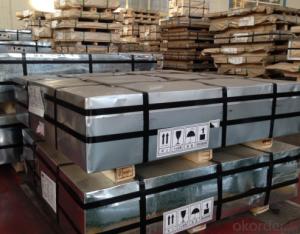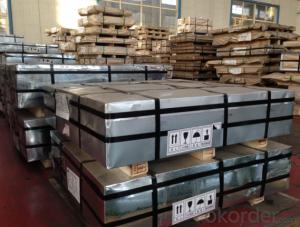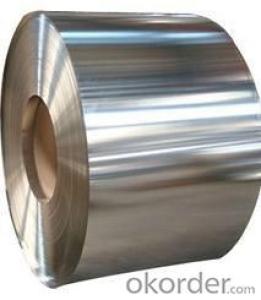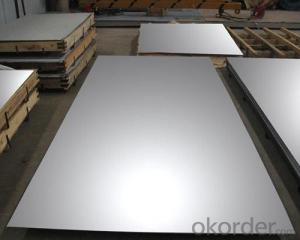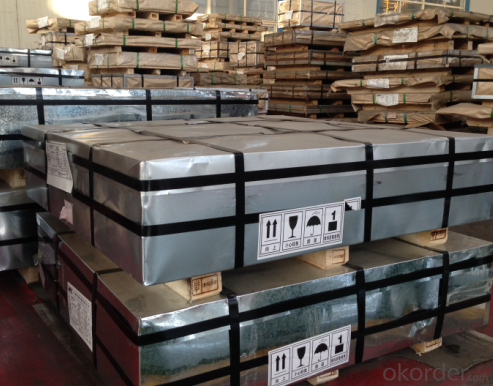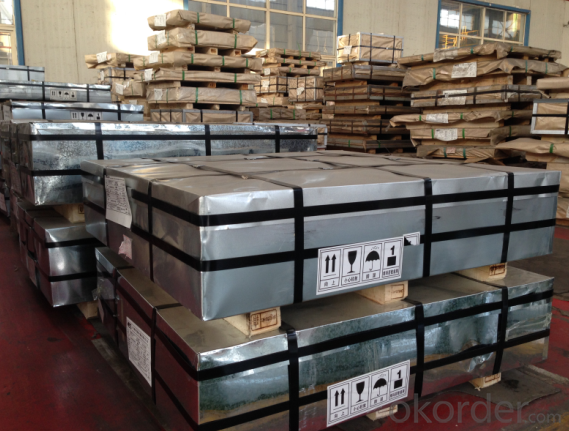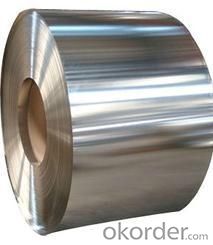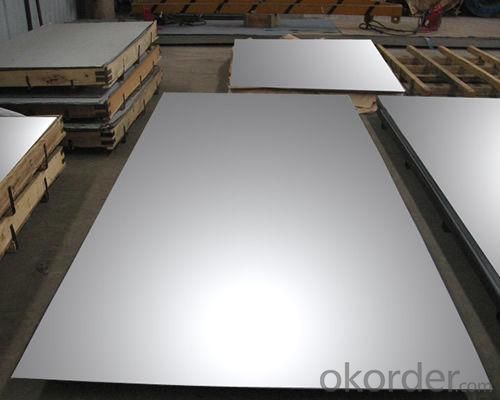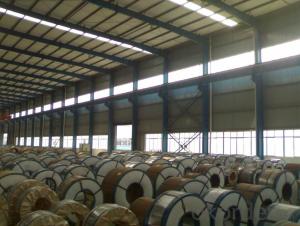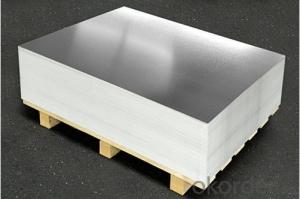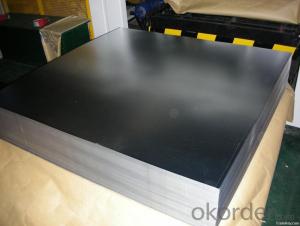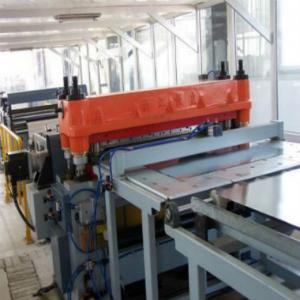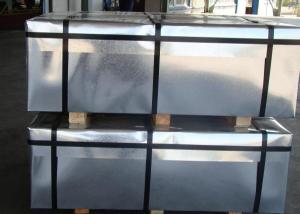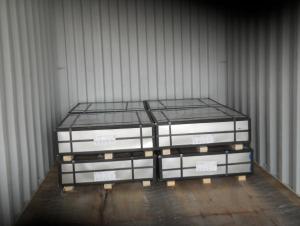Electrolytic Tinplate in Sheets and Coils for Cans Packing
- Loading Port:
- Tianjin
- Payment Terms:
- TT OR LC
- Min Order Qty:
- 25 m.t
- Supply Capability:
- 7000 m.t/month
OKorder Service Pledge
OKorder Financial Service
You Might Also Like
1.Structure of Electrolytic Tinplate in Sheets and Coils for Cans Packing Description
Due to Tinplate packaging`s good seal, nature, dark, robustness and unique decorative metal charm, it has a wide range of coverage in the packaging container industry,and common international packaging varieties. With a variety of CC tinplate material, DR materials, chrome plated and constantly enrich and promotion and development of packaging products and technology, tinplate packaging has promoted with innovation.
Because of its strong antioxidant and diverse styles, beautifully printed, tinplate containers are very popular and loved by customers, and they are widely used in food packaging, pharmaceutical packaging, commodity packaging, instrumentation, packaging, industrial packaging and so on.
With the continuous improvement of tinplate printing technology and processing technology, tinplate packaging has developed more widely.
2.Main Features of the Electrolytic Tinplate in Sheets and Coils for Cans Packing
Appearance – Electrolytic Tin Plate is characterized by its beautiful metallic luster. Products with various kinds of surface roughness are produced by selecting the surface finish of the substrate steel sheet.
Paintability and printability – Electrolytic Tin Plates have excellent paintability and printability. Printing is beautifully finished using various lacquers and inks.
Formability and strength – Electrolytic Tin Plates have got very good formability and strength. By selecting a proper temper grade, appropriate formability is obtained for different applications as well as the required strength after forming.
Corrosion resistance – Tinplate has got good corrosion resistance. By selecting a proper coating weight, appropriate corrosion resistance is obtained against container contents. Coated items should meet 24 hour 5 % salt spray requirement.
Solderability and weldability – Electrolytic Tin Plates can be joined both by soldering or welding. These properties of tinplate are used for making various types of cans.
Hygienic – Tin coating provides good and non toxic barrier properties to protect food products from impurities, bacteria, moisture, light and odours.
Safe – Tinplate being low weight and high strength makes food cans easy to ship and transport.
Eco friendly – Tinplate offers 100 % recyclability.
Tin is not good for low temperature applications since it changes structure and loses adhesion when exposed to temperatures below – 40 deg C.
3.Electrolytic Tinplate in Sheets and Coils for Cans Packing Images
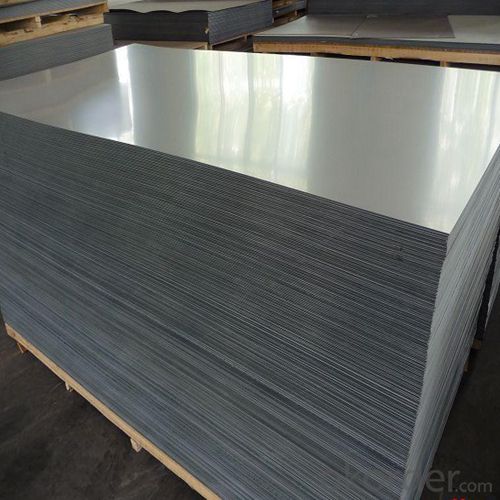
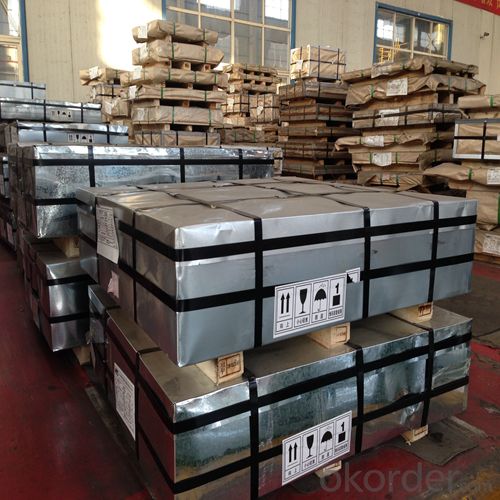
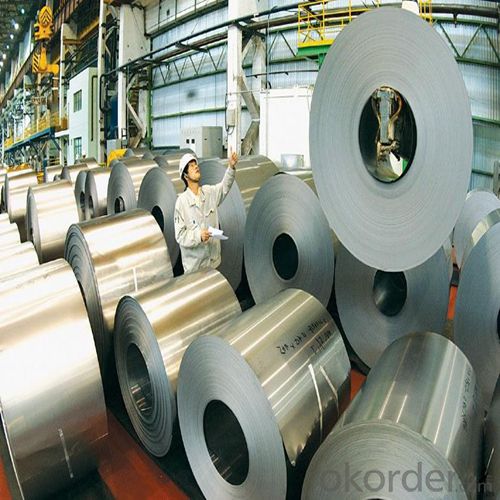
4.Electrolytic Tinplate in Sheets and Coils for Cans Packing Specification
Standard | ISO 11949 -1995, GB/T2520-2000,JIS G3303,ASTM A623, BS EN 10202
|
Material | MR,SPCC |
Thickness | 0.15mm - 0.50mm |
Width | 600mm -1150mm |
Temper | T1-T5 |
Annealing | BA & CA |
Coil Inner Diameter | 508mm |
Weight | 6-10 tons/coil 1~1.7 tons/sheets bundle |
Passivation | 311 |
Oil | DOS |
Surface | Finish,bright,stone,matte,silver |
5.FAQ of Electrolytic Tinplate in Sheets and Coils for Cans Packing
- How are the Electrolytic Tin Plates specified?
The Electrolytic Tin Plates are specified as per the steel base, extent of tempering, the coating weight, annealing method and the surface finish.
- How many types there are for base steels?
The base steels are of three types: Type MR, L, D
- Q: How does tinplate packaging contribute to product differentiation?
- Tinplate packaging contributes to product differentiation by providing a unique and distinctive look to the product. The shiny and attractive appearance of tinplate packaging sets it apart from other packaging materials, catching the attention of consumers and creating a memorable impression. Additionally, tinplate packaging can be customized with various designs, colors, and patterns, allowing brands to showcase their uniqueness and stand out in the market. Overall, tinplate packaging helps products to differentiate themselves from competitors and create a strong brand identity.
- Q: Can tinplate be used for food packaging?
- Yes, tinplate can be used for food packaging. It is a common material choice for cans and containers used in the food industry due to its durability, resistance to corrosion, and ability to maintain the freshness and quality of the packaged food.
- Q: Can tinplate packaging be used for household products?
- Yes, tinplate packaging can be used for household products. It is a versatile and durable material that offers protection and preservation to various household items, such as food, beverages, cosmetics, and cleaning products. Tinplate packaging is also recyclable and eco-friendly, making it a suitable choice for sustainable packaging solutions.
- Q: Can tinplate be used for packaging frozen food?
- Yes, tinplate can be used for packaging frozen food. Tinplate is a type of steel coated with a thin layer of tin, which provides a protective barrier against moisture, oxygen, and other external factors. This makes it an ideal material for packaging frozen food as it helps to maintain the quality and freshness of the product while preventing freezer burn. Additionally, tinplate is also durable and can withstand low temperatures, making it suitable for freezing and storing food items.
- Q: Is tinplate resistant to scratches and dents?
- Yes, tinplate is resistant to scratches and dents.
- Q: What are the main competitors of tinplate in the packaging industry?
- The main competitors of tinplate in the packaging industry are aluminum, glass, and various types of plastics such as polyethylene terephthalate (PET), high-density polyethylene (HDPE), and polypropylene (PP).
- Q: How is tinplate coated for household appliances?
- Tinplate is coated for household appliances through a process called electrolytic tinning. It involves immersing the steel sheet in an electrolyte bath while applying an electric current. This causes tin ions to be attracted to the steel sheet's surface, resulting in a smooth and corrosion-resistant coating.
- Q: Can tinplate be printed on?
- Yes, tinplate can be printed on.
- Q: How does tinplate packaging contribute to product protection against UV rays?
- Tinplate packaging does not contribute to product protection against UV rays.
- Q: Can tinplate be used for packaging fragile items?
- Yes, tinplate can be used for packaging fragile items. Tinplate is a durable material that provides excellent protection against impact and external factors, making it suitable for packaging delicate and fragile items.
Send your message to us
Electrolytic Tinplate in Sheets and Coils for Cans Packing
- Loading Port:
- Tianjin
- Payment Terms:
- TT OR LC
- Min Order Qty:
- 25 m.t
- Supply Capability:
- 7000 m.t/month
OKorder Service Pledge
OKorder Financial Service
Similar products
Hot products
Hot Searches
Related keywords
